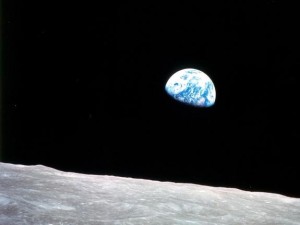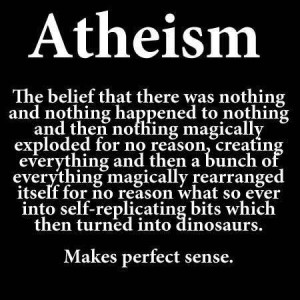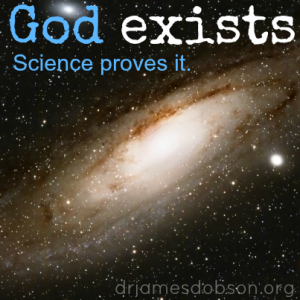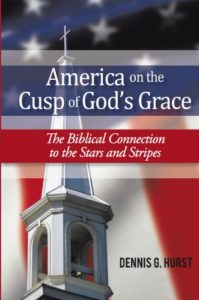Tags
Beyond the Cosmos, Christ, Christianity, Everlasting, Experience, Family, Fellowship of the Minds, Freedom, Genealogy, God, Jesus Christ, Lessons, Liberty, Life, Posterity, Self-Preservation, Teaching, United States, Wisdom
Share it
LORD, thou hast been our dwelling place in all generations. Before the mountains were brought forth, or ever thou hadst formed the earth and the world, even from everlasting to everlasting, thou art God. ~ Psalm 90:1-2

The Ring Galaxy, with a span of 100,000 light years, is 600 million light years away from Earth. Visible in the gap (at about one o’clock) is yet another ring galaxy that likely lies even farther in the distance. [NASA]
As featured many times before, Dr. Hugh Ross is a Christian physicist, apologist, astronomer, and author of mind-expanding books plus a terrific blog Reasons to Believe, showing how science and Christianity can be very compatible. More than that, Dr. Ross uses science to demonstrate the truths of our Christian faith.

Earthrise from Apollo 8 , December 24th 1968…
In his Summa Theologica, St. Thomas Aquinas (1225-1274) famously reasoned for the existence of God by pointing to “the chains of effecting causes that exist in the world. Things here are produced by their causes; these causes in turn were produced by their causes, and so on. Ultimately, there must be a first cause …”
Back in the archives from his post of April 7, 2014, which I was leafing through the other day, Dr. Ross answers a very good question from a non-believer on who/what created that first cause. Here’s the question submitted by an attendee of an RTB event in San Antonio, TX:
Hello … Let me start by saying I’m not actually a believer at this moment. When listening to the lectures, I hear a lot of talk about the complexity of things being a big proponent for creation or design because somebody created it. But at some point in the paradigm you’re at least admitting that, somewhere, something just existed that was at least as complex as, or more complex than, us … If we couldn’t have just existed, how could you say God just existed without something creating him. I’d like to hear your answer on that.
Dr. Ross gave one of his trademark brilliant answers, pointing out that cause-and-effect can only happen in our Universe of space and time. For if we say that X caused Y, X must have happened some time before Y. But the Creator of the Universe cannot Himself be constrained in that Universe. That means the Creator is outside our Universe of space and time, which in turn means that the Creator, the First Cause, is outside of time and, therefore, has no cause.

As St. Thomas Aquinas put it: “Where there is motion, there is a mover, and ultimately a first mover, itself unmoved. This is God. Ultimately, there must be a first cause which is itself un-caused. This is God.“
And here is how Dr. Ross answered, to the edifying of us all:
Dear not-yet-a-believer, your question is one of the most important any human being could ask – and one that most Christians are ill-prepared to answer. As I understand your query, if explaining the natural realm’s ability to support life, especially human life, requires extreme levels of complexity and design, then would not the cause of all this complexity and design need a cause that is even greater than Him? As Richard Dawkins puts it, the problem with Christianity is accounting for who “designed the Designer?”
The question of who created God was the heart of my debate with Lewis Wolpert at Imperial College in London. (You can listen to the debate here). In a nutshell, I explained that, today, physicists across the philosophical spectrum acknowledge that the space-time theorems are unassailable. If the universe contains mass and if general relativity reliably describes the movements of bodies in the universe, the theorems are valid. Those theorems establish that space and time had a beginning at the origin of the universe. They imply that the causal agent of the universe is not subject to space and time—thus, that agent can create space-time dimensions at will.
Of course, any entity – such as the universe and everything subject to the laws and dimensions of the universe – that is constrained to a single dimension of time, where time cannot be stopped or reversed, must have a beginning. Ultimately, such entities must be traceable back to a creation event. However, an entity not constrained by time need not have been created.

In the beginning, God created …
The Bible declares in multiple passages that God created time (e.g., John 1:3; Colossians 1:16–17). Psalm 90 adds that God can arbitrarily compress or expand time as we know it. In my book Beyond the Cosmos (3rd edition), I include diagrams illustrating that this compression and expansion of time is only possible for beings with access to the equivalent of at least two dimensions of time. Scripture also declares that God has no beginning, no ending, and is not created (e.g., Psalm 90:2; Hebrews 7:3). These declarations could be true only of a Being who created time, rather than one who is subject to time.
Philosophers responding to Dawkins have pointed out that he made a category error. God is in a different category than the universe or humans in that He is not subject to the physical laws of the universe or to its space-time dimensionality.
For a more thorough answer to this question, I suggest reading Beyond the Cosmos. The book includes a description of scientific evidence for the existence of nine dimensions of space and for a Being who brought into existence ten space-time dimensions.
In closing, I would highly endorse Dr. Hugh Ross and his challenge to the questioner. It has been an ever-present “go-to” reference on my desk since I purchased the first edition back in 1997, and it is now updated to the third edition as new findings constantly come to the fore. Other than that, you can edify yourself from his compact 32-minute address to the Community Church in Leesburg, Virginia, from March last year.
Hast thou not known? hast thou not heard, that the everlasting God, the LORD, the Creator of the ends of the earth, fainteth not, neither is weary? there is no searching of his understanding. ~ Isaiah 40:28
***************


 Link To DennisGHurst.com
Link To DennisGHurst.com


